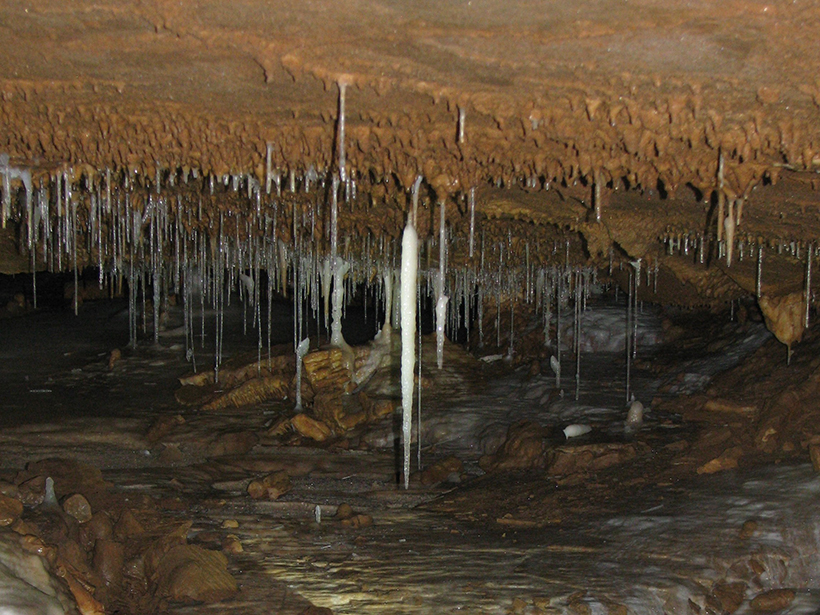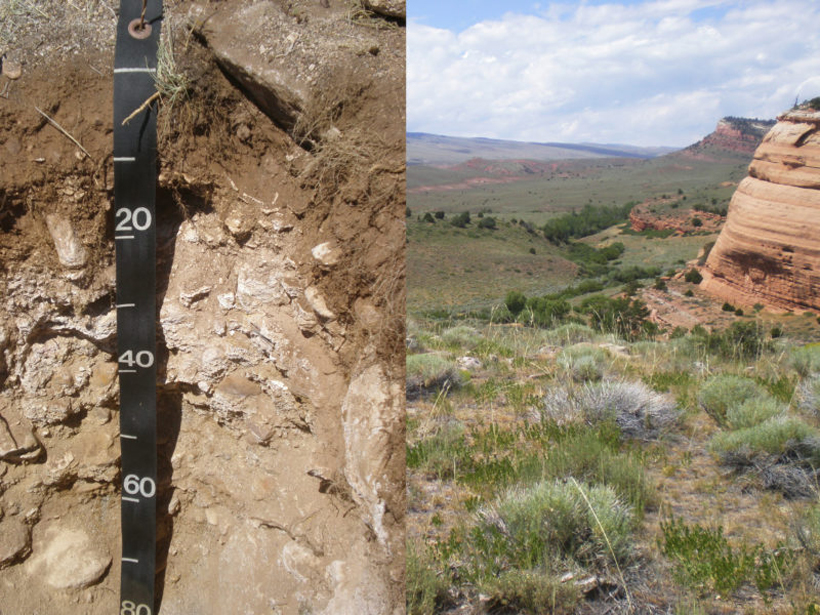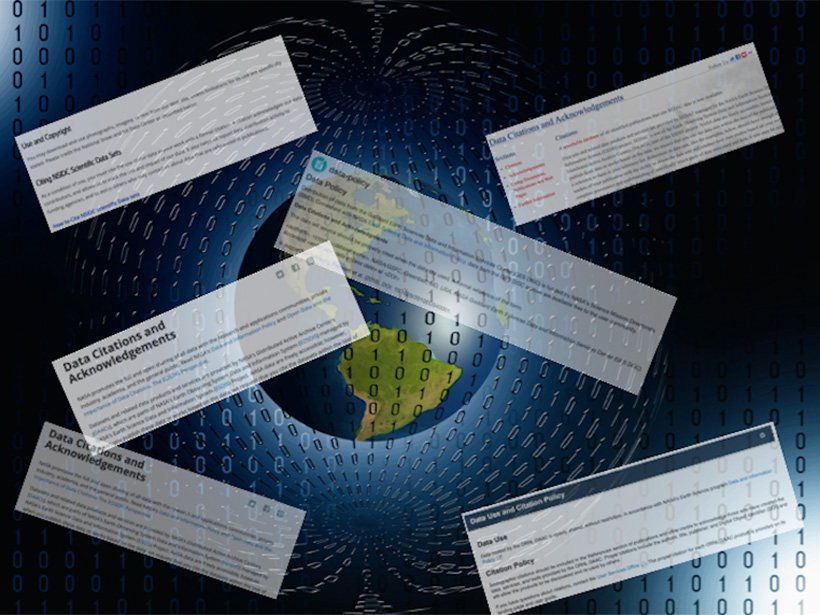HadCRUT5, the new version of the Met Office Hadley Centre/Climatic Research Unit global surface temperature dataset from 1850 to 2018, has extended and improved the previous temperature record.
data management
Improving Access to Paleoclimate Data
Paleoclimate databases are powerful tools for improving climate models. The recent work of speleothem researchers offers lessons on creating a lasting database and fostering the needed mindset.
Exploring the Engine and Drivers of Soil Formation
A new book presents a multidisciplinary perspective on soil, exploring it as a nexus for water flow, near surface (bio)geochemistry, erosion and deposition, and biologically coupled nutrient cycling.
A Global Look at Surface Soil Organic Carbon
Soil organic carbon is an important element of ecosystem and climate health. Remote sensing can now give scientists a global look at this important piece of the carbon puzzle.
Enhancing Food Security Through Earth Science Data
When most agriculture in the world is rural, getting crucial geoscience information to farmers is a technical challenge that a few organizations are just starting to figure out.
Special Collection on Open Collaboration Across Geosciences
Join open writing teams to collaborate on commentaries for a special collection describing approaches that embody synthesis, cross-disciplinary integration, and open science across geosciences.
A Fresh Perspective on Intricate Volcanic Plumbing Systems
Combining commercial hydrocarbon and mineral exploration data with novel academic research and modeling capabilities helps answer key questions about underground magma systems.
Our Food Systems Are Complicated. Food Data Don’t Have to Be
Researchers made a “Google Maps” for global food systems. Could it help us tackle food’s thorniest problems?
Australia’s Most Extreme Bushfire Season, Statistically Speaking
Researchers identified climatic and geomorphic risk factors that led to record-breaking fires across Australia during the 2019–2020 fire season.
Data Sets Are Foundational to Research. Why Don’t We Cite Them?
The lack of clear references to and descriptions of data sets in published literature limits the usefulness of data, as well as the reproducibility and credibility of scientific findings.










